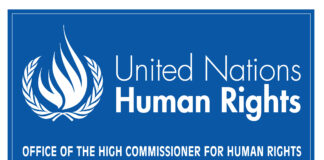Tag: Open Dialogue
Third Time Lucky: Open Dialogue and Finding Meaning in My Inherited...
A year after my twin’s death, I stood in a supermarket and felt my body disintegrating into a thousand pieces. My soul knew it needed the right teacher and helper. Fortunately, I found Open Dialogue. It helped me expose the real childhood trauma, and gradually rebuild my shattered, grief-stricken psyche.
Alita Taylor – Open Dialogue: Making Meaning
An interview with psychotherapist, trainer and facilitator Alita Taylor who shares her passion for Open Dialogue, explaining why Open Dialogue 'cannot be taught, but needs a teacher'.
Open Dialogue: Does the Current Research Data Support Further Investment?
A leading US journal published an extensive literature review and analysis of currently available research on Open Dialogue. An accompanying commentary concludes, “The present data on Open Dialogue are insufficient to warrant calls for further research on the program other than those projects that are currently under way.”
Anatomy of a Psychiatrist
An interview with Dr. Sandy Steingard, Medical Director at Howard Center and Clinical Associate Professor of Psychiatry at the College of Medicine of the University of Vermont. Dr. Steingard serves as Board Chair of the Foundation for Excellence in Mental Health Care and is editor of the book 'Critical Psychiatry, Controversies and Clinical Implications' due in 2019.
When Rain Comes, Words Are Unnecessary: Our Search for a Better...
As stories wove together, Ron turned to the son and said, “You know, I don’t think you were ever schizophrenic at all.” There was an extended silence as this statement sunk in and the group drew closer to hear what came next. But the rain fell harder until all sound was drowned out. We sat together, feeling the rain soak into our ears, our bodies, the ground; words were unnecessary.
Dr. Russell Razzaque: Breaking Down is Waking Up
An interview with Dr. Russell Razzaque, consultant psychiatrist and associate medical director in east London who, together with colleagues, is leading a pioneering multi-centre Open Dialogue pilot in the UK National Health Service.
Psychiatrist Calls for Increased Attention to Therapeutic Alliance
Sandra Steingard, writing in the journal Psychiatric Services, reviews a recent article finding that the quality of the therapeutic relationship impacts the efficacy of medication treatment.
United Nations Report Calls for Revolution in Mental Health Care
In a new report, the United Nations Special Rapporteur on the right to health, Dr. Dainius Pūras, calls for a move away from the biomedical model and “excessive use of psychotropic medicines.”
Opening a Dialogue about Early Psychosis Programs in the US
It is very encouraging to observe the spread of early psychosis programs to many states and communities throughout the United States. I hope that someday there are programs in all 50 states, not just 34, and that there are literally thousands of these programs not a hundred.
Aliveness and Social Justice: Teaching the Principles and Practices of Open...
Over the past seven years, I have been teaching open dialogue principles and practices in a variety of settings. This blog will focus on the development of a training program, now based in Manhattan, and what I’ve learned from running this program and teaching this approach in the US.
Victims of Success: An Update from Mad in America Continuing Education
Within days of announcing the webinar and providing the link to register, we were deluged with enrollments. It turns out that a great many professionals, advocates and clinical managers are interested in learning about Open Dialogue and its application to an American community.
Integrative Mental Health: 27 Non-drug Options that Work
Four years ago I dove into a deep and murky pond: the bottomless depths of medical databases that hold mental health research. After examining over 4000 studies, and hundreds of meta-analyses, I surfaced from my research and was hit with a startling “Aha” moment: non-drug approaches really work.
Opening A Dialogue In Mental Health
I have sometimes stopped en route to work, unsure how much longer I can continue. There is a sense of betrayal to my father and grandmother by working in a profession that failed them and is the only medical specialty to have its own survivor movement, not from the illnesses it hopes to treat, but from the ministrations of the profession itself.
Rejecting the “Medications for Schizophrenia” Narrative: Part II
In this second article, I will further analyze the reasons why the unevidenced biological-illness approach to “schizophrenia” has become so entrenched in our society. Most importantly, I will discuss hopeful alternatives.
Rejecting the “Medications for Schizophrenia” Narrative: A Survivor’s Response to Pies...
As a psychiatric survivor who has personally experienced severe psychosis, my criticisms focus on the relative lack of attention to what psychiatric drugs actually are, and on the uncertain, contested nature of the supposed target of these drugs: “schizophrenia.” I will elaborate on each of these points with references, as well as highlighting alternative approaches to helping psychotic people.
Pilot Study Adapts Open Dialogue for US Health Care
In an article for Psychiatric Services, psychiatrist Christopher Gordon and his colleagues report on the results of a one-year feasibility study attempting to implement...
Six Lessons on Open Dialogue From the Collaborative Pathway Experiment
The Collaborative Pathway is a replication and adaptation of Open Dialogue at Advocates, Inc., a human services agency in Framingham, Massachusetts where I serve as Medical Director. Last week, our team published an article in the Best Practices column of the journal Psychiatric Services, describing the program and our results from the first cohort of young people and families experiencing a psychotic crisis. This is the first published adaptation of Open Dialogue in the U.S. and represents the culmination of several years of planning, training, and direct service.
“Learning to Live with the Voices Inside Your Head”
For ABC’s All in the Mind, Lynne Malcolm and Olivia Willis report on the latest research showing that hearing voices may be far more...
My Journey of Recovery
I was never anti-recovery. I will admit, however, that when the recovery movement first came to my attention in the 1990s, I was not drawn in. In recent years, this is another area in which I have needed to re-examine my assumptions.
Love is Dialogical: The Open Dialogue UK International Conference and Training
In the past five years, there has been a dramatic explosion of interest in the Open Dialogue Therapy practiced in Tornio, Finland. It is a humanistic “treatment” that has produced five-year outcomes for psychotic patients that are, by far, the best in the developed world, and there are now groups in the United States, Europe and beyond that are seeking to “import” this care. However, the challenges for doing so are many and, last month, Open Dialogue UK - on the occasion of the first-ever fully recognized Open Dialogue training outside of Tornio - organized a conference in London to hold an open dialogue about Open Dialogue.
Getting Back to Dialogue – The Core of Healing!
When people are “mad,” they are often insisting that certain things are so, and frequently seem unwilling or incapable of appreciating or learning from other perspectives. Yet when the supposedly “sane” mental health system approaches those who are mad, it typically does the same thing – it insists that its own view of what’s going on is correct, and seems incapable of appreciating or learning from others, whether they be the patient, the family, former users of services, or anyone who understands madness in a different way.
“Open Dialogue: Finland’s Alternative Approach to Mental Illness”
"Almost 30 years ago a group of clinicians in Finland decided to treat psychosis differently. Their approach, known as Open Dialogue, has impressive recovery...
Testifying in Vermont: Forced Drugs
Vermont Governor Shumlin recently suggested a change to state law that would accelerate the process under which a person could be forced to take antipsychotic drugs against her will. The House Human Services Committee reviewed this proposal and I was asked to testify. What follows are my comments.
Reflections on How We Think About and Respond to Human Suffering,...
Any attempt to establish an alternative diagnostic system to the predominantly biologic DSM-5 classifications or to initiate a transformation of the individually oriented mental health treatment systems needs to critically explore how, not only what, we think about health and healing, about mental and emotional suffering, about traumatic experiences and injustices, and the multiple forms of pain that are part of our human existence. The broad critique of the DSM-5 by so many national and international organizations and individual colleagues will in the end not be powerful and far reaching enough without this inquiry into the foundations of our thinking and without reflection about our ways of thinking.
Madness and the Family, Part III: Practical Methods for Transforming Troubled...
We are profoundly social beings living not as isolated individuals but as integral members of interdependent social systems—our nuclear family system, and the broader social systems of extended family, peers, our community and the broader society. Therefore, psychosis and other forms of human distress often deemed “mental illness” are best seen not so much as something intrinsically “wrong” or “diseased” within the particular individual who is most exhibiting that distress, but rather as systemic problems that are merely being channeled through this individual.
























